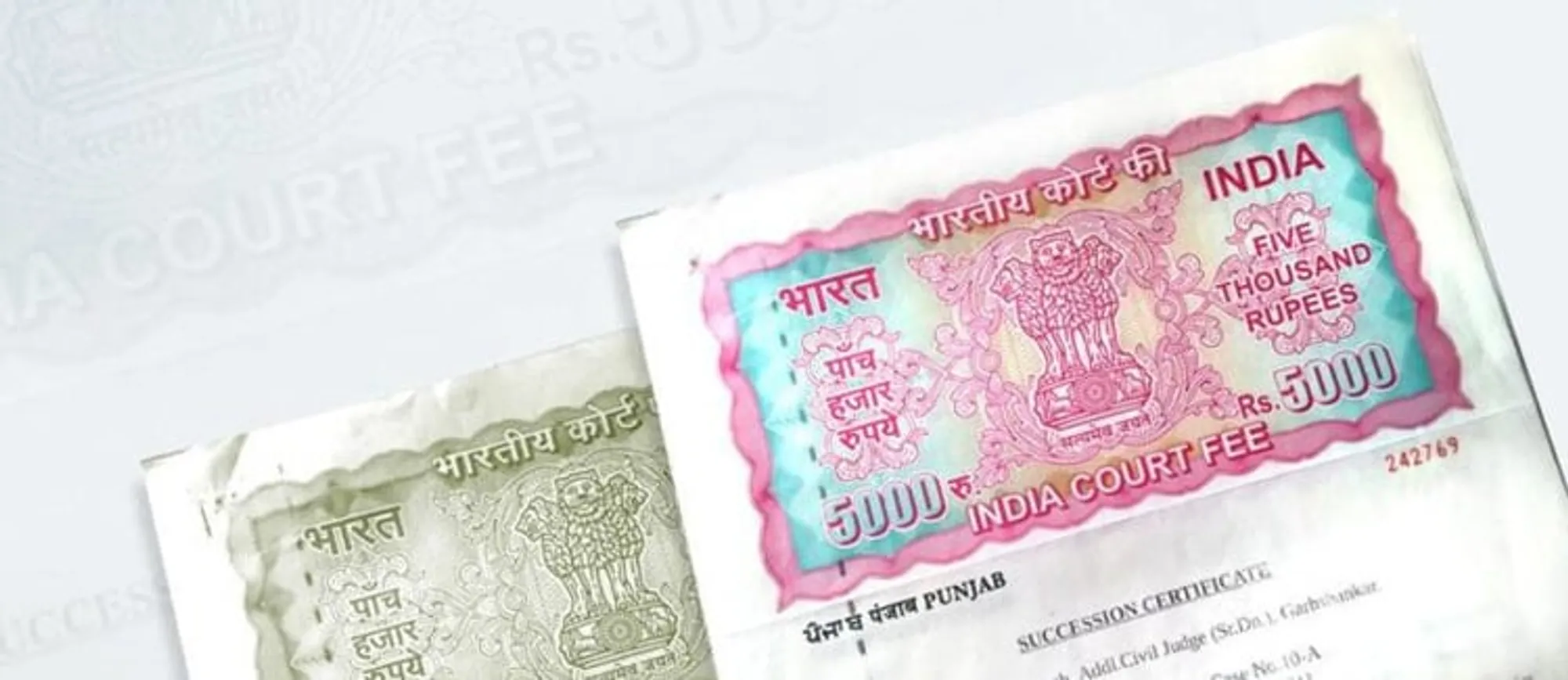Non-resident Indians face lot of problems when it comes to accessing their inherited moveable assets in India. Stringent policies of banks regarding releasing the funds of deceased persons leave legal heirs in disarray as they are not fully acquainted with the laws and procedures to access these assets. A succession certificate is now mandatory for accessing any type of movable assets whether they maybe funds locked up in bank accounts or investments held in the form of equites, Government bonds, mutual funds, or any such financial instruments or these maybe funds held in post offices in India.
Succession Certificate is a document which is issued by the court for claiming movable assets by the successors of the deceased person. It establishes the legitimacy of the heirs and gives them the authority to access the assets. It is issued by the appropriate civil courts in India under the relevant laws of inheritance on an application filed by the beneficiaries in a court of applicable jurisdiction for issuance of such a succession certificate.
Obtaining a Succession Certificate in India
- The beneficiary must file a petition to procure a certificate in a court of law.
- The certificate may be issued by a District judge under whose jurisdiction the movable assets in question are located, or by a judge under whose authority the deceased lived.
- The petition must specify the name of the beneficiary, his/her relationship with deceased, names of all other Class 1 Legal heirs.
- The death certificate of the deceased person whose assets are being asked for by the legal heirs must be attached to the petition.
- The court will then notify the parties concerned and provide a time frame within which anyone might object. If no objection is raised, then the court issues a succession certificate to the beneficiary.
- In the event of multiple beneficiaries, a joint certificate is issued.
NRI Legal Services provides a comprehensive service for the Indian diaspora overseas to obtain such succession certificates so that they can access the hard-earned money invested by their parents into movable assets. We deliver this end to end service without the need for our clients having to travel to India.
FAQ
No. Petition for Succession Certificate is filed only to claim movable assets like funds lying in Savings Accounts, FDRs, Pension money etc.
We require original bank related documents to show in the Court. If the original documents are not in possession of the claimant, the original record can be summoned in Court from concerned Banks. Alongwith this, Original death certificate of the person whose assets are being claimed is required to be attached with the petition. If the assets are being claimed on the basis of Will, original Will is required.
The Banks and financial institutions do not permit the legal heirs to operate the bank accounts of a deceased person without any proper court order to circumvent any discrepancy. Hence, the Petition for Succession Certificate is filed to obtain order in this respect.
Petition for Succession Certificate can be filed anytime. There is no time limitation.
Succession Certificate can be claimed on the basis of a Will or natural succession.
Yes, unless there is a Will in place in which the testator has exclusively excluded his/her daughters from inheritance of his/her properties which were his/her self acquired properties.
It depends upon case to case. However, the minimum time is approximately one year.
Court Fee has to be paid upon the total amount being claimed under petition for Succession Certificate. It is a mandatory requirement and the amount of Court fee varies from State to State.
The first party is always ‘General Public’. As per the Court order, publication is made in order to invite objections from the general public as prescribed under Indian Law. All the legal heirs of deceased who are not claiming anything from the assets of the deceased are also made parties to the suit. Banks can also be impleaded as parties, in case the original bank documents are not with the claimant.
The Court may also require the applicant to sign an Indemnity Bond to secure the entitled persons. This Bond may also require a Surety or some other security. That will ensure no possible loss arises out of the use or misuse of such certificate.After furnishing the Surety, the Court grants Succession Certificate. On the basis of Succession Certificate assets can be claimed.
A legal heir certificate is to recognize the lawful living successors of a deceased person.
On the other hand, the succession certificate is to first recognize the lawful living successors of a deceased person and thereafter, authorize them to claim movable assets of deceased person.

